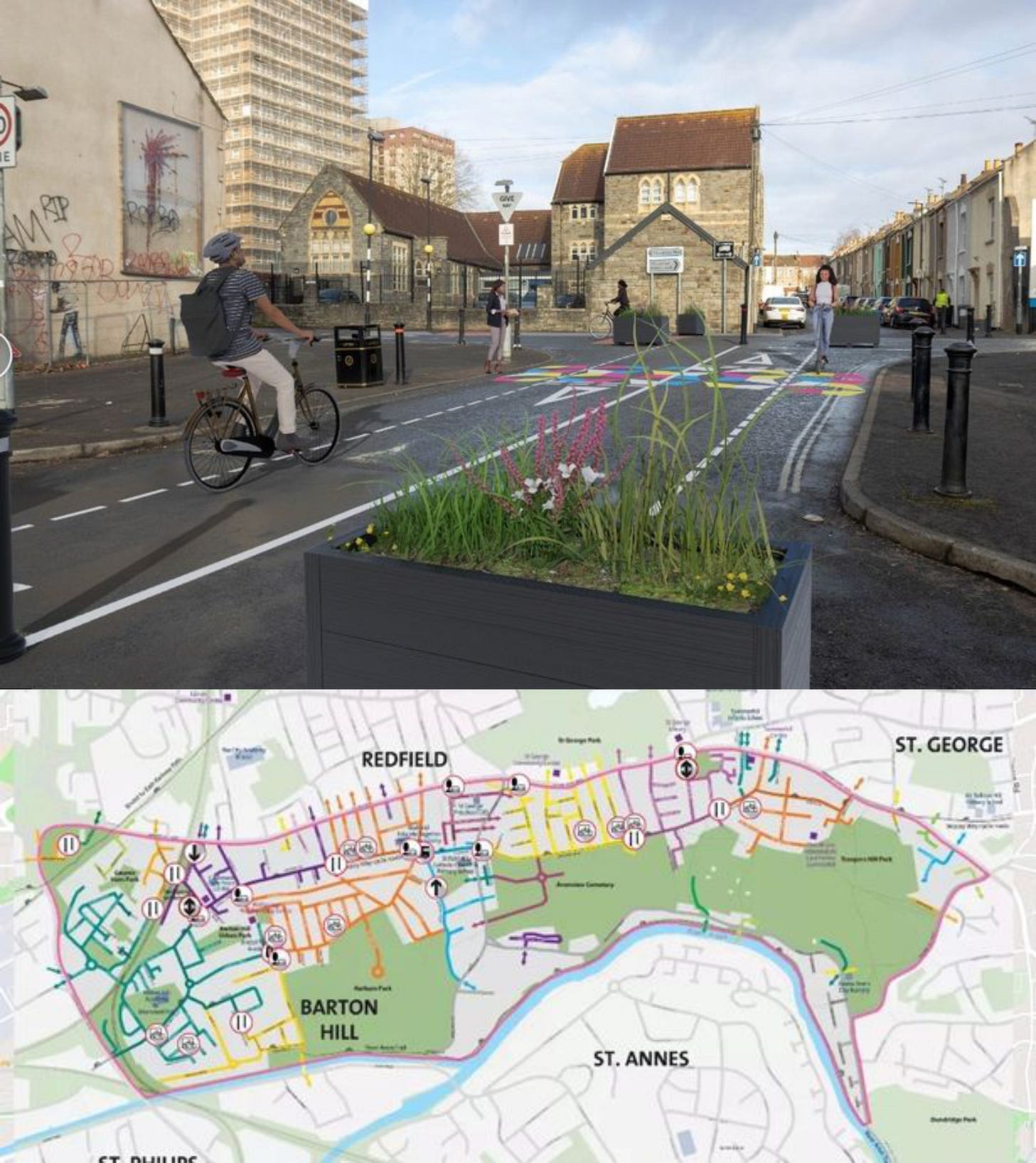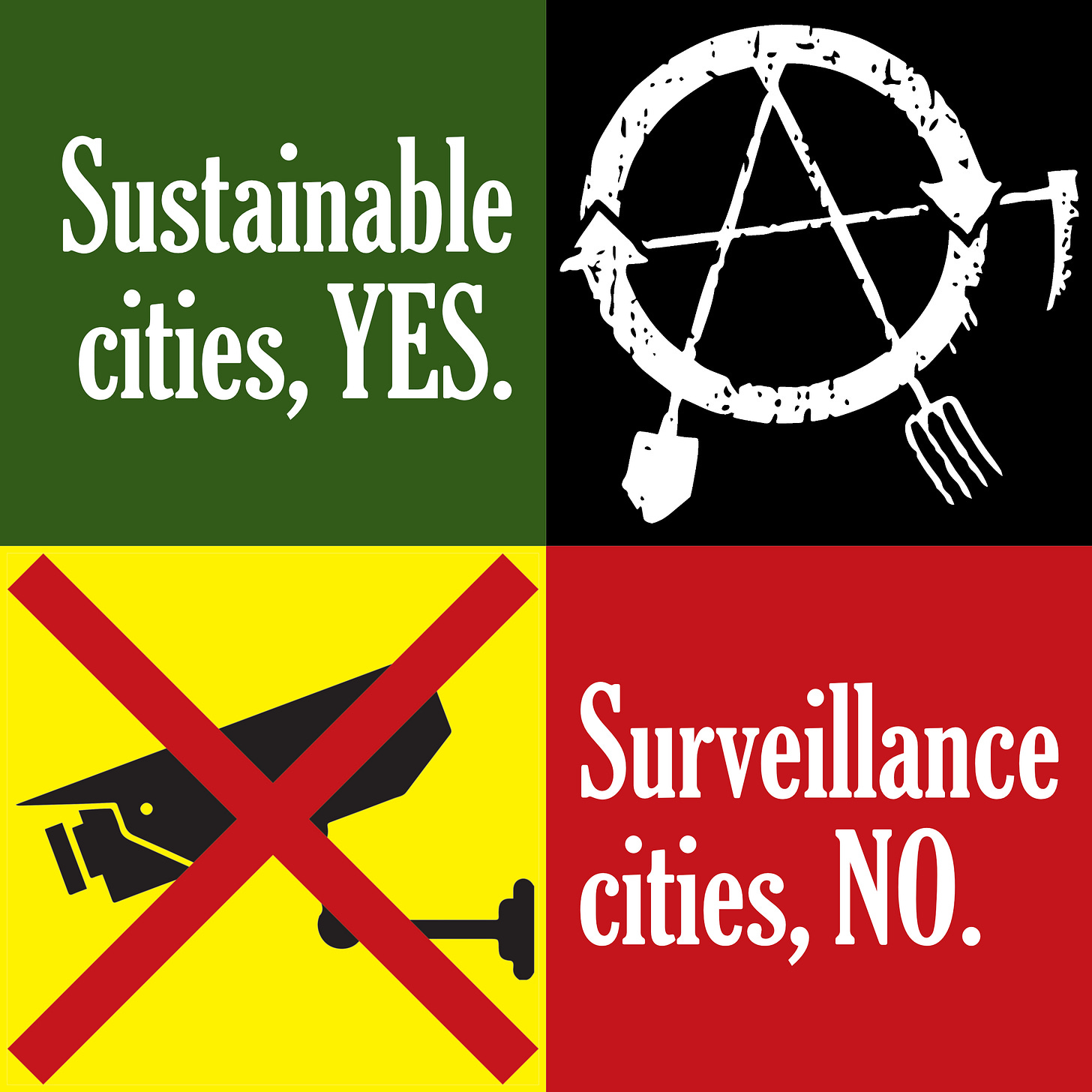Will it work or will it cause more problems?

Plans for a trial 'liveable neighbourhood' scheme stretching across the east of Bristol have been announced: East Bristol ‘liveable neighbourhood’ - list of roads that will be blocked 4.5.23. The aim is to reduce rat-running and through traffic in residential areas. The results of this trial will be evaluated before a permanent scheme is put into place in 2025. If this scheme is deemed to be 'successful', a second 'liveable neighbourhood' scheme could be introduced across parts of Ashton, Southville and Bedminster.
It's worth taking a look at the Bristol Live article linked to above, not just for coverage of how Bristol City Council think the scheme will work, but also for the comments from the readers. The vast majority of whom are opposed to the scheme for a range of reasons. These range from concerns about traffic being displaced into neighbouring areas through to fears this is an attack on the freedom of movement.
Regardless of the reasons for opposition, the fact that hardly anyone has come out in open support of this trial scheme should speak volumes. Should, but as pissed of residents of Bristol are only too well aware, actually listening to the concerns of residents isn't exactly the city council's strong point.
The vast majority of people would rightly welcome less traffic through their neighbourhoods. They would also welcome cleaner air. However, the vast majority of people have the common sense to realise that without an overall reduction in the volume of traffic using the road network, all these 'liveable neighbourhood' schemes will achieve is to displace traffic into adjacent areas.
Reducing the amount of traffic using the road network requires a lot of joined up thinking. This starts with re-configuring our towns and cities so that people don't need to make as many car journeys as they do now. That will be a complex and painful process and to be brutally honest, we doubt that local and regional authorities have the intellectual capacity to fully grasp what's required. That amongst other issues is dealt with in the piece we wrote a short while ago: Fifteen minute cities - the debate continues… 19.4.23.
If there's a serious intention to reduce the amount of vehicle traffic on the roads, viable and attractive mass transit options are a must. You don't need us to tell you that such options are not available in Bristol. The bus service is in a state of crisis. There are vast swathes of Bristol that have no ready access to a decent local train service. East Bristol is one of them. The contradictions of being told to reduce car use in a region with piss poor public transport provision are dealt with in this recent piece we published: One the one hand…then on the other… 27.4.23.
Some people will say that cycling and walking are viable options. That ignores the fact that for reasons of health and/or disability, not everyone will be able to take up these options. When it comes to cycling, there's plenty to ensure that it's not an attractive option in Bristol! This ranges from a patchy network of cycle paths through to poor maintenance of these paths and road surfaces in general which make cycling a hazardous pursuit. As for walking, the state of the pavements across Bristol leaves a lot to be desired. We're talking about the basics which any local or regional authority should be getting right as a matter of course...
Anyone who lives in or visits Bristol will tell you that the city council struggles to get the basics of road and pavement maintenance right. A number of the reader comments in the Bristol Live article linked to at the start of this piece stated that before coming up with any grandiose schemes, Bristol City Council need to get the basics of road and pavement maintenance right. That in and of itself would go some way to making cycling and walking around the city a safer and more attractive experience than it is now.
So, will this 'liveable neighbourhood' scheme stretching across the east of Bristol work? It may well deliver a few quieter streets for some people who may well appreciate it. It will almost certainly increase traffic and pollution on roads adjacent to the area covered by the scheme. The quality of life for some people will worsen as a result. If as is highly likely, this scheme creates problems because of traffic displacement when there's no reduction in the overall volume of traffic on the road network, will Bristol City Council take note and amend their plans accordingly?
You can't blame people for being cynical about these 'liveable neighbourhood' schemes when they see Bristol City Council failing to push for viable mass transit options and falling down on getting on top of the basics of road and pavement maintenance. Given this, you can hardly blame at least some of them for concluding that there are more nefarious motives behind the implementation of these schemes. Implementations which they feel are little more than top down impositions.
The problem is that as soon as you get outside the restrictive parameters of what can be discussed about the implementation of 'liveable neighbourhoods' and 'fifteen minute cities', in come the accusations of 'conspiracy theory'. As soon as that happens, the wide ranging discussion that's needed about the future of our towns and cities gets sidelined. That is not the way forward in our view...





